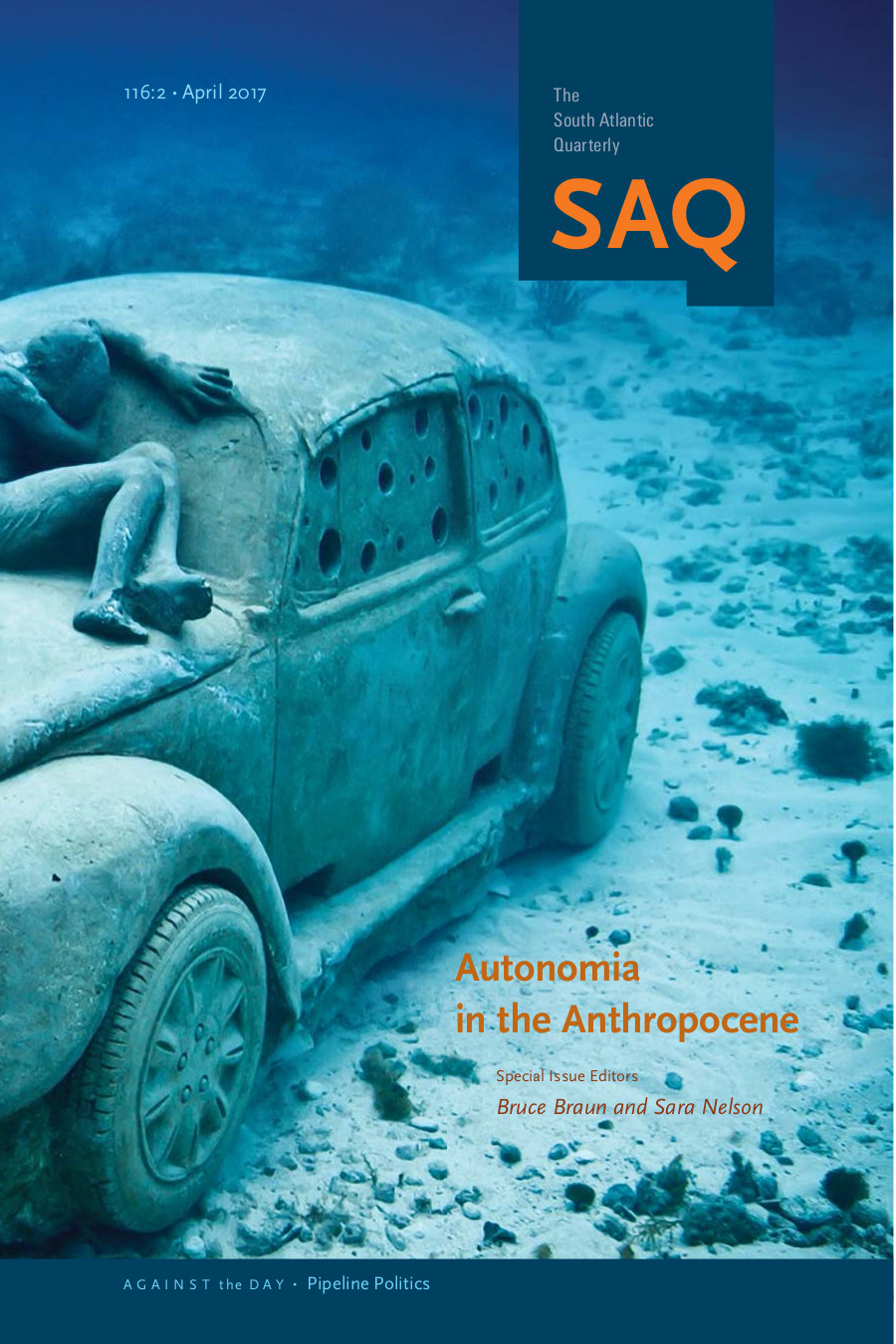South Atlantic Quarterly, 116(2): Autonomia in the Anthropocene (2017)
Filed under journal | Tags: · anthropocene, autonomy, capitalism, cognitive capitalism, commons, labour, marxism, multitude, subjectivity

“Despite Autonomia’s widespread influence on political action and post-Marxist scholarship, it has been surprisingly slow to address planetary change and environmental politics. With a focus on cognitive capitalism, many autonomist scholars have downplayed or fully ignored the ecological dimensions of post-Fordism—its foundations in extractive energy economies, its links to the accelerating financialization of nature under the banner of so-called green capitalism, its harnessing of nonhuman capacities, and its wildly uneven toxic geographies. This lack of engagement is regrettable given that, we propose, autonomist insights hold great promise for understanding both the transformed relation between capital and nonhuman natures in post-Fordism and the many political movements that have emerged in response. […]
It is no longer evident that key terms found in the autonomist lexicon—species being, the common, multitude, potentia—survive the challenge of the Anthropocene unchanged or that the production of subjectivity (a cornerstone of autonomist thought) can be understood solely in terms of language, habit, or gesture. It may therefore be necessary to think beyond the struggles of the factory floor, or those of the cognitariat today, to imagine and think from other sites of struggle, other forms of solidarity, and other experiments in “commoning.” These bring into play unfamiliar actors and unacknowledged geographies: sites of extraction and circuits of waste, indigenous communities and territories, rising seas and toxic landscapes that are materially present within the informationalized economies of global capitalism, but often invisible to those working within them. We might say, then, that the Anthropocene names autonomist Marxism’s unthought, an unthought that intrudes on its political imaginaries. What happens to autonomism if it begins to question the autonomy of the human? Or if it leaves its privileged sites in the global North?”
With contributions by Sara Nelson and Bruce Braun, Miriam Tola, Jason Read, Elizabeth R. Johnson, Elizabeth A. Povinelli, Matteo Pasquinelli, Karen Pinkus, Marco Armiero and Massimo De Angelis, Anja Kanngieser and Nicholas Beuret, and Isabelle Stengers.
Edited by Sara Nelson and Bruce Braun
Publisher Duke University Press, Apr 2017
ISSN 0038-2876
178 pages
Leave a Reply

